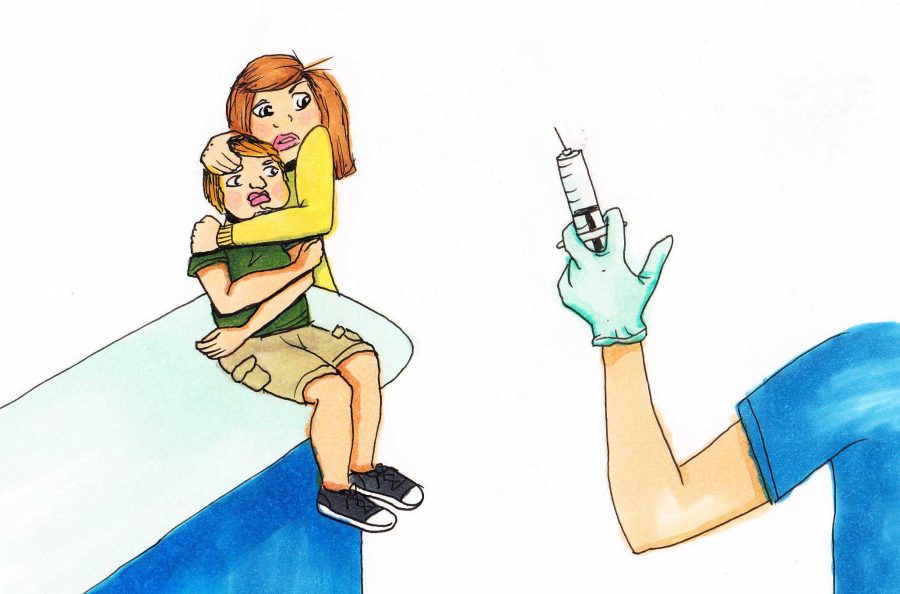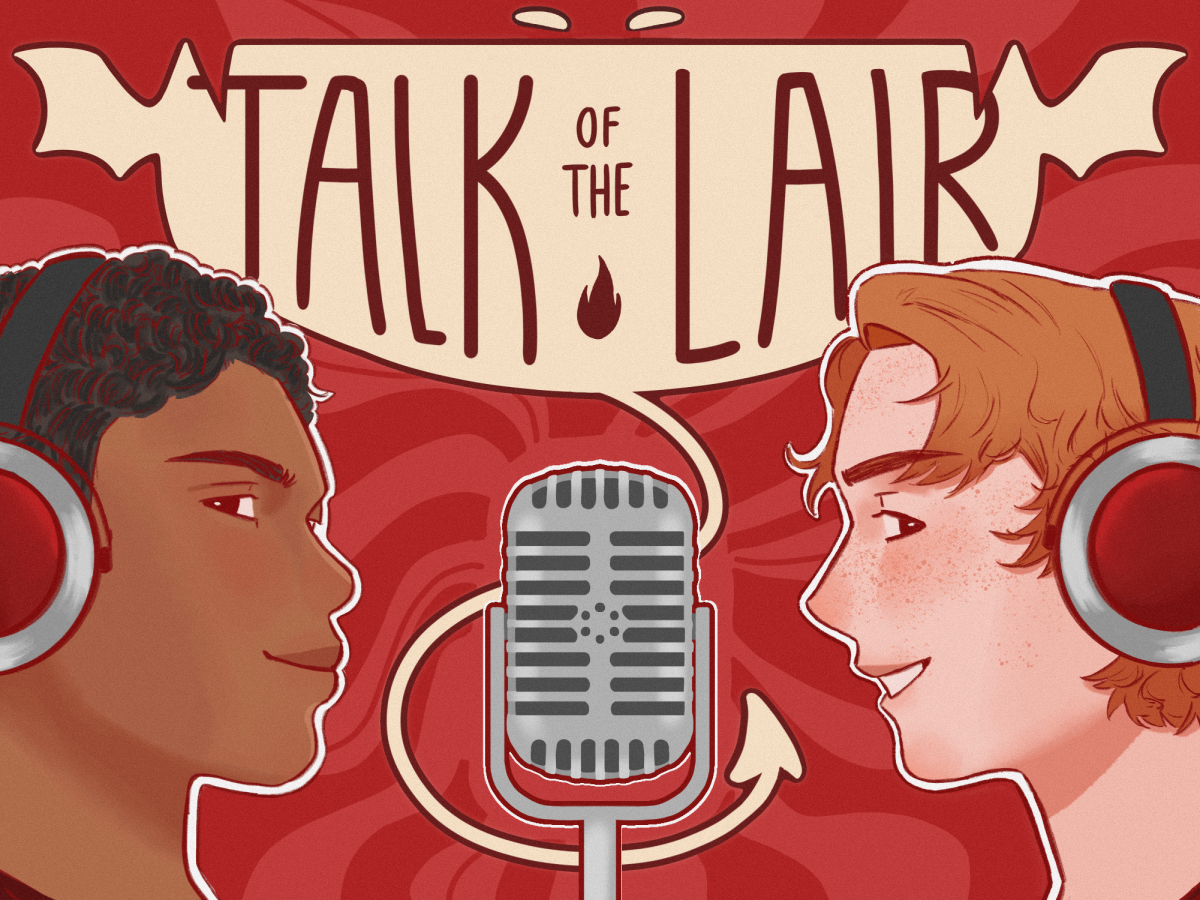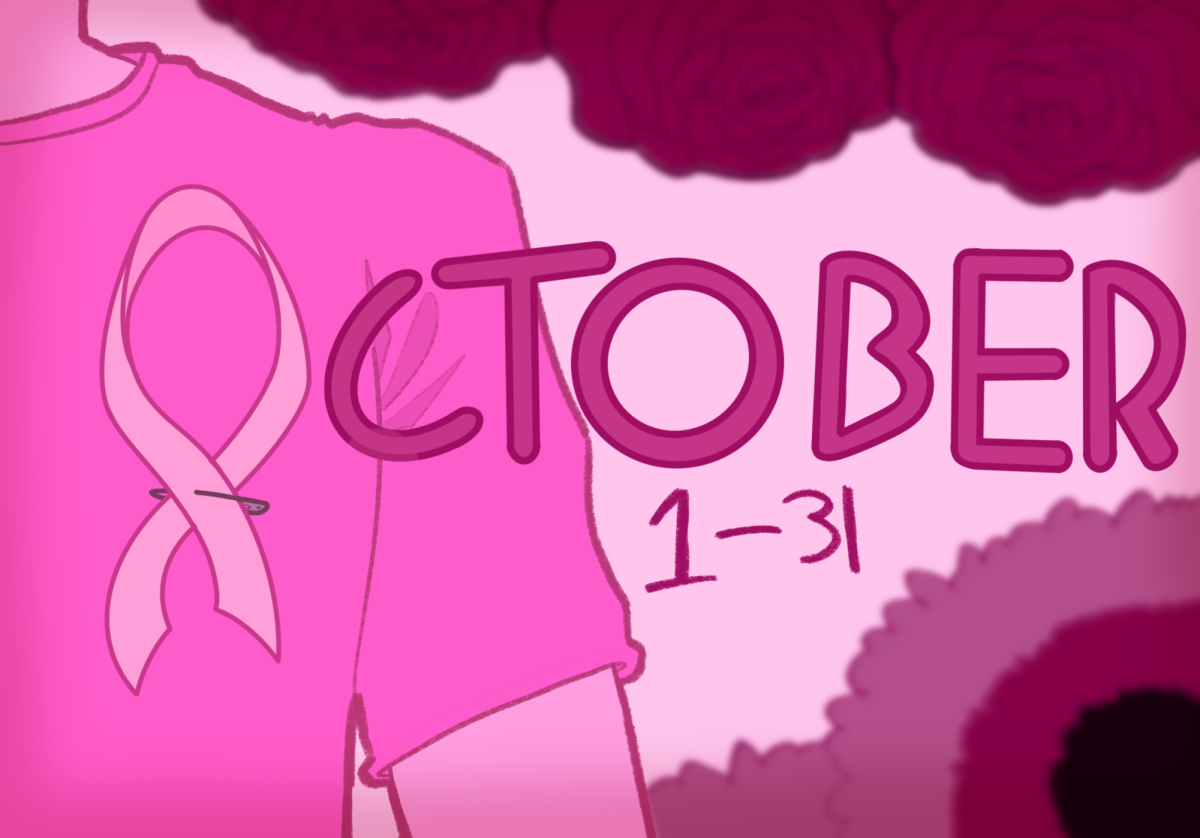Americans thrive on controversy. We all love debating the topics that we are most passionate about, whether it be abortion, immigration or the death penalty. However, sometimes a topic will come up that we think is controversial, when it actually is not. The perfect example of this is the “debate” over vaccines. Disagreements over vaccines have arisen from misconceptions. The reason many people have the misconception that vaccines are a controversial issue that they can “take a stance on” boils down to a few simple logical fallacies.
The first logical fallacy is post hoc, ergo propter hoc, a Latin phrase meaning “after this, therefore because of this.” In simpler terms, it is showing the problem with the assumption of causation when there is more likely only a correlation. For example, the rooster crows immediately before sunrise, therefore the rooster causes the sun to rise. This assumption could be thought of as reasonable, however once we think about it, we quickly realize that one does not cause the other.
The most prominent of these fallacies in relation to vaccines is the misconception that vaccines cause autism. Some parents have assumed that because their children were diagnosed with autism after they received their vaccine, the autism was brought on by the vaccine. However, aside from autism appearing in the same time frame as the vaccine, there is no other connection. The only correlation between the two is that they both generally happen in childhood. It is as ridiculous to think that vaccines cause autism as it would be to think that the rooster makes the sun rise.
The second logical fallacy is the “on the one hand, on the other hand” fallacy. This fallacy is in people’s minds because of the media and the way they portray evidence available for vaccines. Newscasters will say statements like “on the one hand, the entire scientific community agrees vaccines are safe, and on the other hand we have a few personal stories and experiences.” The problem with statements like these is that it is making it seem like the two “sides” are balanced and have equal ground, when in reality they are far from it. The scientific evidence greatly outweighs a few mothers’ personal concerns. The media is convincing viewers that there may be some doubt as to whether or not it is safe to vaccinate. While yes, it is the media’s job to keep the government in check, this is not an issue that should be up for debate. There is no doubt that vaccines are safe, and there is no conspiracy going on.
One of the biggest miscommunications that has happened when discussing vaccines is the translation from the language of science to “common” English. Reporters interviewing scientists and doctors misunderstand the “underlying message” in what they are saying. Proving that vaccines are not harmful would be proving a “negative” in the scientific community. For example, a negative would be that gravity doesn’t exist. The positive would be that it does. It is possible to prove that gravity does exist, but there is no way to prove that it does not. Because vaccines not being safe is a positive, and vaccines being safe is the negative, scientists can never be 100 percent certain that a negative is true. This is reflected in the way they will phrase certain statements. For example, if a reporter asked a scientist, “Are vaccines safe?,” the scientist would have to begin their response with a statement like “based on the current information” or “to the best of our knowledge.”
If a person says something of this manner in common English, it can be inferred that they are hinting that they actually don’t believe what they are saying. However, when a scientist says it, it does not have the same meaning. Instead, it is simply reflecting the nature of science that there are no absolutes. The scientific community agrees that vaccines are safe, and if they were speaking in common English they would say something along the lines of “there is no risk at all to vaccines.” This misunderstanding has caused people (and the media) to question if the scientists are trying to hide something when they are not.
Much of the backlash against vaccines began with the “connection” between vaccines and autism. The background to this statement provides even more evidence as to why it should not be a concern for parents. In 1995, a doctor, Andrew Wakefield, published a study in The Lancet, a well-respected British scientific journal. The study “gave evidence” as to why there is likely a link between the MMR (measles, mumps, rubella) vaccine and autism. The study itself had many flaws, the major issue being the case size. His “research” was based on results from 12 people. The case size was so small, that it should never have been taken seriously to begin with.
Once published, there was major backlash from other scientists, who did not believe his study. There was research done into the study, and it was discovered that the Andrew Wakefield had distorted and made up his findings. His paper was retracted from The Lancet, his medical license was taken away, and he lost all credibility in the scientific field. Follow-up studies looking at hundreds of thousands of children have found no evidence whatsoever of any causation between the MMR vaccine and autism.
The biggest problem with the recommendation of Wakefield to hold off on vaccinating until “further research has been conducted” is that it threatens herd immunity. Herd immunity happens when enough of a population is vaccinated that a disease will never have a major outbreak. This structure can only occur when a significant majority (above approximately 94 percent) have been vaccinated.
In the United States, the nation as a whole has high enough vaccination rates that herd immunity applies. The biggest reason for the necessity of herd immunity is that it protects the weakest in society who cannot defend themselves against diseases: infants, pregnant women and those who have had major operations that make them too weak to get a vaccine. If herd immunity goes away, those are the people who are most likely to be infected.
There are a few different groups of parents that will choose not to vaccinate their children. Each group has slightly different motives, and can be responded to in different ways. The parents can be divided into the under-informed, the hyper-informed, and those who have lost trust in the modern field of medicine.
Those who are under-informed are motivated by a combination of wanting to be “natural” and of following the recommendations of those around them. They generally think that modern medicine treats things that may not even be a problem. Once these parents hear a few “scary” things about vaccines, they are too scared to vaccinate. These people are the most easily persuaded when it comes to vaccination because their motives are about what others say, rather than personal ideas and research.
Next come the hyper-informed. Being hyper-informed is, unfortunately, not the same as being well-informed. These parents can have a few different motives for their decision. First, they may have a “suspicion” about vaccines, then “prove” their suspicions by reading hundreds of articles about the dangers of vaccines. The other possibility is that they consider themselves clever in relation to vaccines. They know exactly what herd immunity is and they choose to rely on it. They make the decision to protect their children from the “possible risks” of vaccines, while also knowing that their child is not at risk for the disease. The problem with this ideology is that as this idea becomes more and more popular, and fewer people are vaccinating their kids, herd immunity goes away. These parents are much harder to sway because they have made up their minds based on their personal beliefs and “cleverness.”
The smallest group of anti-vaxxers are those who have had a personal experience that they base their decision off. Whether they are like Jenny McCarthy, who needed a reason for why her child has autism, or someone whom the science has failed, no amount of data or evidence will affect their decision. They believe that in the medical world, they are the exception to the rule. If their child is part of a very small group who has an unresearched disease, they may have had an experience where a doctor did not have a reason or treatment. This makes them feel as if they cannot trust the medical community. The parents think they have a better chance trying to find their own cure for their child through experimentation. For this group, there will be no changing their mind. As Jenny McCarthy said about her son, “My science is named Evan. He’s at home. That’s my science.”
Seth Mnookin explains the problem with Jenny McCarthy’s kind of reasoning by saying that any scientist or person familiar with the scientific process would tell you that “[…] any one person is an anecdote and the plural of anecdote is not data, it’s just a story.” Mothers like Jenny McCarthy are not giving the public evidence, but rather simply telling persuasive stories.
Our current law system does not enforce the need for vaccines. In most areas, even if vaccines are “mandatory,” there are exemptions. The exemptions are mostly created for people who have religious objections to vaccines. However, this is not a reasonable exemption because there are no major religions that oppose vaccines. First, major holy texts (the Koran, the Christian Bible, the Torah, texts of the Sanskrit, etc.) were written before vaccines were created. They have no reference to vaccines in them. Most major religions also put a high value on life and quality of life. Vaccines have clearly preserved life. These two things in tangent point towards the conclusion that religions would be pro-vaccination, not against it. This is, in fact, the case.
The few religious groups that have been anti-vaccine are either small minorities or have changed their mind. Two examples are the Amish and the Church of Scientology. The Amish were anti-vaccination until their community had a major measles outbreak. After this, the majority of them got vaccinated to prevent further disease outbreak. The Church of Scientology is anti-medicine in general, and is such a small minority that the entire exemption of laws should probably not be based on them.
Some religious exemptions are understandable when it comes to surgery, etc., but this one is not. The only real effect of the religious exemption is that it makes it easy for parents who are against vaccines for any reason to not vaccinate their children.
The last key misconception is held by people whose political views advocate personal freedoms. Some of these people, even if they themselves will get vaccinated, advocate for allowing vaccines to be a medical choice. The problem is that vaccines are not a personal decision. Personal freedom in some medical circumstances is completely understandable. For example, if I choose to eat poorly and not exercise, that may have negative effects on me, but that should still be my choice. Similarly, if I have a terminal illness and choose not to get treatment, that is my choice. These situations are ones where personal freedom is necessary for a free society. Vaccines are not about personal freedoms. If I choose not to vaccinate my family or myself, that does not just affect us. It can affect people everywhere. If I am not vaccinated, I am a potential carrier and spreader of diseases.
Not vaccinating harms herd immunity, including those who herd immunity protects most. Some people cannot be vaccinated, and they rely on herd immunity to protect them. One such group is infants. The majority of deaths caused by whooping cough have been infants. In addition, we can potentially cause outbreaks in countries with significantly lower vaccination rates than ours. Most philosophies advocating personal freedoms have the idea that personal freedoms do not include harming others. For example, the expression “my right to punch you in the face ends when my fist hits your nose.”
The only responsible choice is to vaccinate, if we have the ability. Vaccines are safe, and we need to overcome the misconceptions to protect people from the horrors of disease.















